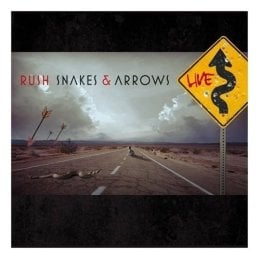Progarchives.com has always (since 2002) relied on banners ads to cover web hosting fees and all.
Please consider supporting us by giving monthly PayPal donations and help keep PA fast-loading and ad-free forever.
/PAlogo_v2.gif) |
|
Post Reply 
|
Page <1234 15> |
| Author | |||
Dean 
Special Collaborator 

Retired Admin and Amateur Layabout Joined: May 13 2007 Location: Europe Status: Offline Points: 37575 |
 Posted: August 15 2014 at 04:06 Posted: August 15 2014 at 04:06 |
||
That's curious ... is it used in that Anglicised form or is it used in some form derived from the Spanish spelling of Quijote?
|
|||
|
What?
|
|||
 |
|||
Gerinski 
Prog Reviewer 

Joined: February 10 2010 Location: Barcelona Spain Status: Offline Points: 5093 |
 Posted: August 15 2014 at 04:13 Posted: August 15 2014 at 04:13 |
||
|
^ the spanish actual adjective is quijotesco (noun quijotería). Curiously though, the adjective in catalan is quixòtic.
|
|||
 |
|||
Dean 
Special Collaborator 

Retired Admin and Amateur Layabout Joined: May 13 2007 Location: Europe Status: Offline Points: 37575 |
 Posted: August 15 2014 at 04:30 Posted: August 15 2014 at 04:30 |
||
Ah, it's less curious then. I presume that the Catalan word is wholly of Catalan derivation and its similarity to the Anglicised form is just consequence of both Catalan and English using the "-ic" suffix to turn a noun into an adjective.
|
|||
|
What?
|
|||
 |
|||
Gerinski 
Prog Reviewer 

Joined: February 10 2010 Location: Barcelona Spain Status: Offline Points: 5093 |
 Posted: August 15 2014 at 04:35 Posted: August 15 2014 at 04:35 |
||
Indeed
|
|||
 |
|||
Dean 
Special Collaborator 

Retired Admin and Amateur Layabout Joined: May 13 2007 Location: Europe Status: Offline Points: 37575 |
 Posted: August 15 2014 at 05:07 Posted: August 15 2014 at 05:07 |
||
Do you know of any words commonly used in Spanish that were borrowed into English and then taken back in their Anglicised form?
|
|||
|
What?
|
|||
 |
|||
Gerinski 
Prog Reviewer 

Joined: February 10 2010 Location: Barcelona Spain Status: Offline Points: 5093 |
 Posted: August 15 2014 at 07:04 Posted: August 15 2014 at 07:04 |
||
Ugh... letters are not really my strength... I'l think about it. Of course many English words have Latin roots so they may be similar to their Spanish counterparts but this does not mean that they were borrowed from Spanish into English, most likely they came directly from Latin or from any other Latin language such as French or Italian. Likewise many anglicisms are used in Spanish, and some of them may have those Latin roots, but again this does not mean that the word was originally borrowed in English from Spanish and then returned in its anglicised form. An example could be aquarium. It has the Latin root aqua (water, agua in Spanish) and although the proper Spanish word in Spanish is acuario, few people use it anymore and most people will now say or write aquarium or perhapsacuarium. But I don't think it came into English from Spanish, rather it came directly from Latin. Possibly more clear cases can be found in the States were the Latin-American presence has been and is very important so the direct interplay between Spanish and English has been much stronger than in Europe, but I'm not so familiar with the modern Spanish they talk in the States.
|
|||
 |
|||
Dean 
Special Collaborator 

Retired Admin and Amateur Layabout Joined: May 13 2007 Location: Europe Status: Offline Points: 37575 |
 Posted: August 15 2014 at 07:39 Posted: August 15 2014 at 07:39 |
||
|
I was thinking of words we borrowed directly from Spanish like cargo, ranch and caldera whose English meaning is slightly different from similar English words with the same Latin root. For example caldera is derived from the Latin calderia meaning boiling pot, where we get (by way of a different route) cauldron, we don't use cauldron when we mean "mouth of a volcano" and we don't use caldera when we mean "cooking pot"... So my question would be, did the Spanish use caldera as a geological term before the English stole the word?
|
|||
|
What?
|
|||
 |
|||
Gerinski 
Prog Reviewer 

Joined: February 10 2010 Location: Barcelona Spain Status: Offline Points: 5093 |
 Posted: August 15 2014 at 07:58 Posted: August 15 2014 at 07:58 |
||
I can't say for sure but I guess they did. We use caldera meaning either cauldron, kettle, boiler, the volcano mouth, the heart piece of a steam locomotive or other steam machines...
|
|||
 |
|||
Dayvenkirq 
Forum Senior Member 

Joined: May 25 2011 Location: Los Angeles, CA Status: Offline Points: 10970 |
 Posted: August 15 2014 at 10:55 Posted: August 15 2014 at 10:55 |
||
 |
|||
The Doctor 
Special Collaborator 

Honorary Collaborator Joined: June 23 2005 Location: The Tardis Status: Offline Points: 8543 |
 Posted: August 15 2014 at 11:01 Posted: August 15 2014 at 11:01 |
||
|
I use it all the time. "Hey buddy, got alight?"

|
|||
|
I can understand your anger at me, but what did the horse I rode in on ever do to you?
|
|||
 |
|||
Dayvenkirq 
Forum Senior Member 

Joined: May 25 2011 Location: Los Angeles, CA Status: Offline Points: 10970 |
 Posted: August 15 2014 at 11:02 Posted: August 15 2014 at 11:02 |
||

|
|||
 |
|||
rushfan4 
Special Collaborator 

Honorary Collaborator Joined: May 22 2007 Location: Michigan, U.S. Status: Offline Points: 65937 |
 Posted: August 15 2014 at 11:07 Posted: August 15 2014 at 11:07 |
||
|
Alit is a popular answer in crossword puzzles when referring to landing.
|
|||

|
|||
 |
|||
Dean 
Special Collaborator 

Retired Admin and Amateur Layabout Joined: May 13 2007 Location: Europe Status: Offline Points: 37575 |
 Posted: August 15 2014 at 14:17 Posted: August 15 2014 at 14:17 |
||
It is not a synonym. When you dismounted from a horse you made its burden lighter and this is where "alight from a train" comes from. Over time this came to mean the act of coming down from the horse rather than the act of making its burden lighter, so was applied to the act of a bird coming down from the air onto a branch or perch even though pedantically the act of alighting on a branch makes it heavier rather than lighter. The use for "to settle or perch" is uncommon and can sound clumsy compared to "land" because we hardly ever use it in the present tense, we would normally use it in the past tense "the bird alighted on the branch" or "we saw the birds alighting on the branch". We can also use this meaning when referring to sight, as in "our gaze alighted on a pretty trinket" The more-common use of the word 'alight' is similar to Chester's witticism and means something on fire or lit up. "The lamp was alight" or "a discarded match set the forest alight"
|
|||
|
What?
|
|||
 |
|||
Dayvenkirq 
Forum Senior Member 

Joined: May 25 2011 Location: Los Angeles, CA Status: Offline Points: 10970 |
 Posted: August 15 2014 at 14:21 Posted: August 15 2014 at 14:21 |
||
|
I see.
I learned how to spell "pizzazz" and got a grip on its meaning. Really an ugly-sounding word. It's not even pronounced like "pizza". ... Another new one for me: "gaffe". ... And that's an interesting one: "ignosticism" (no, not agnosticism).
Edited by Dayvenkirq - August 15 2014 at 14:31 |
|||
 |
|||
The Doctor 
Special Collaborator 

Honorary Collaborator Joined: June 23 2005 Location: The Tardis Status: Offline Points: 8543 |
 Posted: August 15 2014 at 14:46 Posted: August 15 2014 at 14:46 |
||
|
Really? I've always liked the word pizzazz. It's got pizzazz.
I must admit to never having heard the word ignosticism before. And it appears from the red-line underneath the word, that I'm not the only one. Sounds very close to agnosticism, with the exception of the statement that God need not be debated or discussed. |
|||
|
I can understand your anger at me, but what did the horse I rode in on ever do to you?
|
|||
 |
|||
Dayvenkirq 
Forum Senior Member 

Joined: May 25 2011 Location: Los Angeles, CA Status: Offline Points: 10970 |
 Posted: August 15 2014 at 14:49 Posted: August 15 2014 at 14:49 |
||
 ). ).Edited by Dayvenkirq - August 15 2014 at 14:54 |
|||
 |
|||
Dayvenkirq 
Forum Senior Member 

Joined: May 25 2011 Location: Los Angeles, CA Status: Offline Points: 10970 |
 Posted: August 15 2014 at 22:39 Posted: August 15 2014 at 22:39 |
||
|
Here's one of my favorites, for its definition and the way it sounds: "casuistry".
|
|||
 |
|||
HackettFan 
Forum Senior Member 

Joined: June 20 2012 Location: Oklahoma Status: Offline Points: 7946 |
 Posted: August 16 2014 at 21:21 Posted: August 16 2014 at 21:21 |
||
|
The word 'pizzazz' reminds me of another word, 'snazzy'. One time quite a number of years ago now, I told a fellow graduate student her outfit looked snazzy. She was from Germany. English was a second language for her, but she had a very strong command of it. She had a had never heard this word before and asked me about it. I was very much at a loss for words. She wanted to know how it compared to nice, good, beautiful, etc. One of the definitions I looked up just now is "conspicuously or flashily attractive" (www.merriam-webster.com). That's pretty good. I wish I had thought of it at the time. Still it doesn't feel like the definition gets one very far without some actual life experience in using the word. I just know snazzy when I see it.
Her outfit was quite snazzy. —vs.— Her outfit had a lot of pizzazz. Hmmm... 
|
|||
 |
|||
rogerthat 
Prog Reviewer 
Joined: September 03 2006 Location: . Status: Offline Points: 9869 |
 Posted: August 17 2014 at 00:30 Posted: August 17 2014 at 00:30 |
||
|
As somebody who lives in a country where English is only a second language, what I have seen is the way we use English is too functional and literal. Maybe (some) Indians may have a good command over English from a grammatical point of view but they probably tend to think in their native language first and then translate it into English. As a result, the English they/we speak is often devoid of idioms or slang and lacks flavour. What words like pizzazz or snazzy do is to add flavour. That is one reason I usually avoid English novels written by Indian authors because either their English is bad, really bad or their writing is too laboured and tiresome to read whereas reading British or American authors gives me more insight into how native speakers use the language.
Not quite a new word, but I would like to toss in the word aggressiveness and ask about its origins and context, errrm if any, here. Somehow the word doesn't sound right to me and I can say fairly confidently that I never heard it in my growing up years and have never come across it in any work of fiction (didn't notice if I did, at any rate) that I've read. What nuance is aggressiveness supposed to convey that the usage aggression doesn't? I have heard the word mostly on news channels and in tennis commentary so it may well be a crap word, mind. But if it is not, I would be glad to learn more about where I could possibly use it in a sensible way.
Edited by rogerthat - August 17 2014 at 00:31 |
|||
 |
|||
Dayvenkirq 
Forum Senior Member 

Joined: May 25 2011 Location: Los Angeles, CA Status: Offline Points: 10970 |
 Posted: August 17 2014 at 03:06 Posted: August 17 2014 at 03:06 |
||
. . . In the wake of the Ferguson shooting, protests, riots, and looting, I've come across a word on this page - "alderman". It's interesting that within the context of the article, the meaning of "alderman" is more than just some boring "member of a municipal council". It gives more detail. Is this what aldermen/alderwomen usually do? Documenting how the government and the people are doing?
Edited by Dayvenkirq - August 17 2014 at 03:13 |
|||
 |
|||
Post Reply 
|
Page <1234 15> |
| Forum Jump | Forum Permissions  You cannot post new topics in this forum You cannot reply to topics in this forum You cannot delete your posts in this forum You cannot edit your posts in this forum You cannot create polls in this forum You cannot vote in polls in this forum |